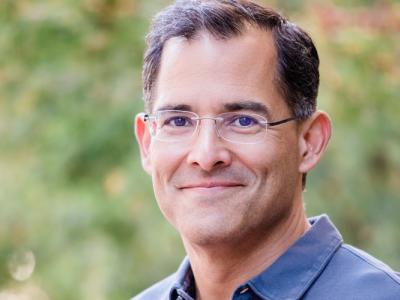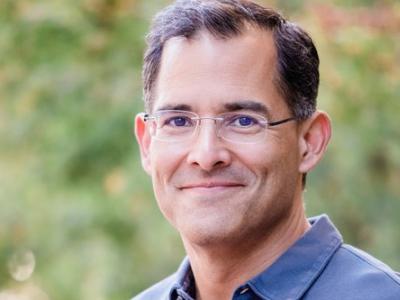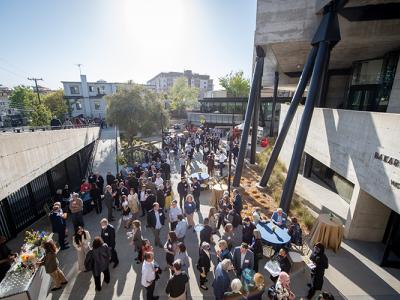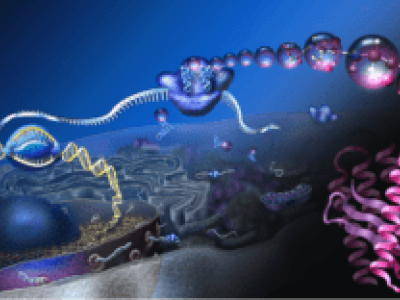California Institute for Quantitative Biosciences (QB3)
The California Institute for Quantitative Biosciences (QB3) is a partnership between the state of California, private industry, venture capital, and the University of California campuses at Berkeley, San Francisco, and Santa Cruz. QB3 is one of four California Institutes for Science and Innovation established in 2000 to ensure the future of the California economy by promoting research and innovation.
Armed with the quantitative tools integral to physics, chemistry, engineering, and mathematics, QB3's more than 250 researchers explore how biological systems work, from atoms and molecules to cells, organs, and entire organisms.
Using advanced imaging, modeling, and computational tools, these scientists decipher the complex systems involved in living systems and discover ground-breaking applications for that basic knowledge.
QB3 produces health benefits for consumers, through new diagnostic tools and therapies for cancer, HIV-AIDS, and other diseases, and speeds up the process of taking research from the bench to the bedside by bridging the gap between scientists and clinicians. QB3 also brings significant economic benefits to California business by partnering with industry and venture capital to accelerate knowledge and technology transfer and stimulate emerging industries.
Research
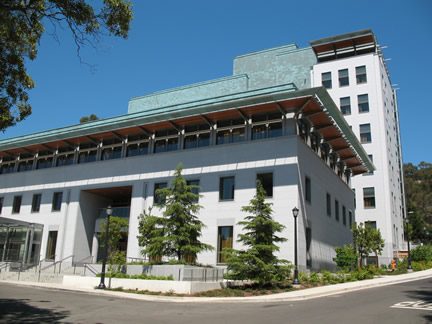
At Berkeley, QB3 manages 9 core research facilities offering services as varied as protein expression, genomic sequencing, and nanofabrication. Highly trained staff members provide services to the entire research community at Berkeley as well as other UC campuses, national laboratories, universities, and private industry.
QB3 researchers enjoy access to world-class instrumentation, technologies, and materials located at UC Berkeley, UC San Francisco, UC Santa Cruz, and nearby Lawrence Berkeley National Laboratory.
Access to these state-of-the-art resources enables scientists and engineers to develop devices, and therapeutics that save human lives, as well as technologies to prevent or mitigate environmental damage and improve energy production and use. Research areas include bioengineering and biotechnology, bioinformatics and computational biology, structural and chemical biology, experimental genomics, proteomics, and biochemistry.
To stimulate multidisciplinary research, QB3 sponsors seminars, informal workshops, and large formal symposia. Participants explore their common ground, discover new synergistic opportunities, and help build QB3's rich scientific community.
Education
QB3 is dedicated to training the next generation of scientists, readying them for a world in which solving biology's grand challenges requires a multidisciplinary approach. QB3 educational programs are designed to help students achieve fluency in physics, math, engineering, and chemistry, and expertise in integrating these quantitative sciences with biological research.
On the Berkeley campus, the QB3-Berkeley Graduate and Postdoc Career Development office helps trainees in the biological sciences explore career options that utilize their scientific training and develop the foundational skills required for effective career planning and transitions to post-graduate careers. In partnership with faculty, and collaborating with other campus entities, the QB3-Berkeley Graduate and Postdoc Career Development office promotes access to career information, skill development, and experiential opportunities, and work to enhance students’ and postdocs’ connections to a range of career paths and organizations within academia and in the public, private, and nonprofit sectors.
QB3 serves as the administrative home for the Biophysics Graduate Group, an independent PhD program that trains UC Berkeley graduate students for careers at the interface of the biological and physical sciences. QB3 also offers a Lab Fundamentals Bootcamp, a five-day training program for undergraduate students participating in summer research programs. Another training program for students is the Summer Undergraduate Biotech Internship program, which offers 10-week paid internships at Bay Area biotech companies and startups.
QB3 also administers the Tang Scholars program, which brings outstanding Chinese researchers in the biological sciences to conduct research in UC Berkeley labs.
Innovation and Entrepreneurship
QB3 operates a network of incubators, providing laboratory space for early-stage biotech companies, including two on the UC Berkeley campus, the QB3 Garage@Berkeley in Stanley Hall, and, in collaboration with the Bakar BioEnginuity Hub, Bakar Labs.
More information about the Berkeley operations of QB3 is available at http://qb3.berkeley.edu. To learn more about the multi-campus QB3 collaboration, please visit http://www.qb3.org/.
Staff Contact
Mackenzie Smith, communications manager
mackenzie.smith@berkeley.edu
510-666-3309


